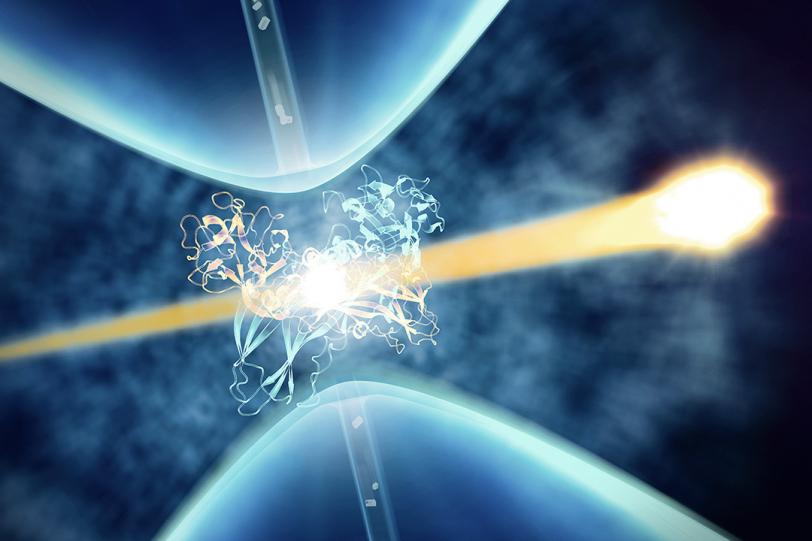SLAC's X-ray laser, the Linac Coherent Light Source, launched a new generation of light sources when it opened 10 years ago last month, with beams 10 billion times brighter than any before. The energy from those powerful beams is enough to destroy any molecule put in its path, yet LCLS can snap a crisp image of the molecule just before it’s blasted apart. That’s a tremendous advantage when it comes to studying chemical reactions and biological processes as they evolve in literally a billionth of a blink of an eye. Some of the most fascinating results come from observing biological molecules at work. This lecture explores how LCLS captures molecules in action, including important biomolecules involved in sleep. It also presents movies of LCLS beams destroying samples, discuss the limitations that scientists still face in studying biological function, and describe SLAC’s future plans in this area.
Seeing is Exploding: Snapping Biological Images with X-ray Laser Blasts
Presented by Sebastien Boutet
About Sebastien Boutet
Sebastien Boutet received his BSc from McGill University in 1999 and his PhD from the University of Illinois in 2005. He then took a postdoctoral position at SLAC, where he is now a senior staff scientist. In his thesis and postdoctoral work, he participated in the first-ever experiments on biological imaging with X-ray lasers using the soft X-ray source FLASH at the DESY laboratory in Hamburg, Germany. He has put that experience to use in designing instruments for imaging experiments at LCLS and in taking the highest-resolution pictures possible of biological molecules in action.
Registration is not required. Seating is on a first-come, first-served basis.
We will also be streaming the lecture live onour Facebook page a few minutes before the start time.
Seeing is Exploding: Snapping Biological Images with X-ray Laser Blasts
Presented by Sebastien Boutet

Seeing is Exploding: Snapping Biological Images with X-ray Laser Blasts
Public lecture presented by Sebastien Boutet
SLAC National Accelerator Laboratory
12:30–1:30 p.m. PDT